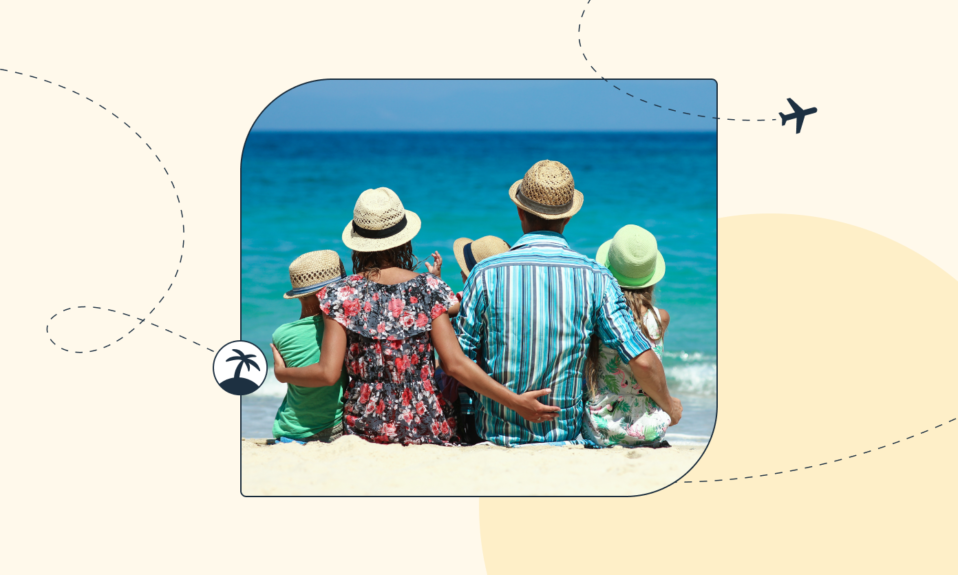If you plan a Caribbean getaway in 2025 and prioritize safety, consider visiting islands like Anguilla, Barbados, the Cayman Islands, Turks and Caicos, and Aruba, known for their low crime rates and traveler-friendly environments.
Now, let’s discuss the above destinations (and more) in detail to see which Caribbean island is indeed the safest to visit this year.
Get a compliant passport photo in 3 minutes with PhotoAiD’s passport photo maker.
- Upload or take a photo.
- Let the PhotoAid Al check and fix it.
- A compliance expert will verify the result.
- Download or order a print. Done!


Get a digital passport photo or order prints with help from PhotoAiD®
100% acceptance, expert verified
2x money-back guarantee
3 minutes and done
11,000,000+ happy users
I was pressed for time and couldn’t get hold of a photographer. I found PhotoAiD, took a selfie, uploaded it, and had a compliant passport photo almost instantly. Getting a photo for my baby girl was a breeze, too!
Related reading:
What Makes a Caribbean Island “Safe” for Tourists?
A “safe island” isn’t only a place where you can leave your hotel room unattended for a day trip without worry. When deciding on a safe destination, there are more factors to consider:
- Crime rates: Low levels of violent and petty crimes.
- Healthcare facilities: Availability of quality medical services.
- Infrastructure: Reliable transportation and communication systems.
- Natural disasters: Effective measures against hurricanes and other natural events.
- Political stability: A stable government and civil environment.
- Tourist support services: Presence of tourist police and information centers.
10 Safest Caribbean Islands for 2025
Looking for the safest island in the Caribbean to explore? Whether planning a family holiday or a solo escape, these 10 destinations offer peace of mind and paradise.
Turks and Caicos: Laid-back luxury with very low crime
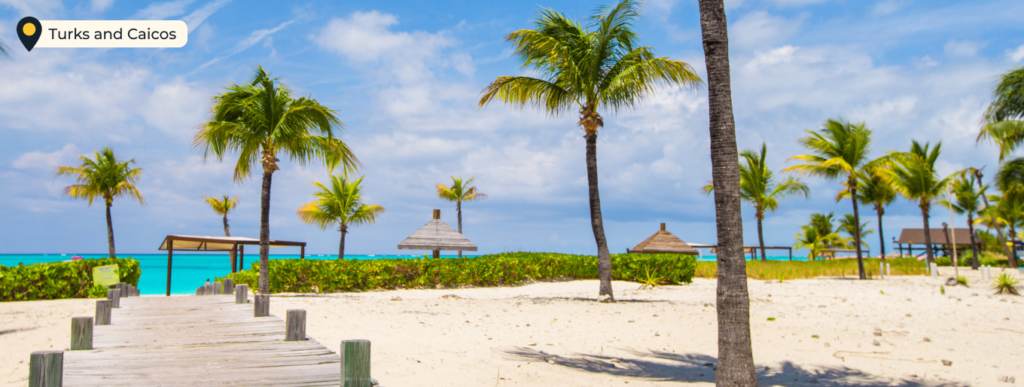
Turks and Caicos offers a tranquil environment with low crime rates, especially in tourist areas. The islands have reliable infrastructure and healthcare services, ensuring visitors’ safety and comfort. While the region is susceptible to hurricanes, effective preparedness measures are in place. The stable political climate and dedicated tourist support services make it a secure destination for travelers.
Barbados: Strong infrastructure and tourism-friendly
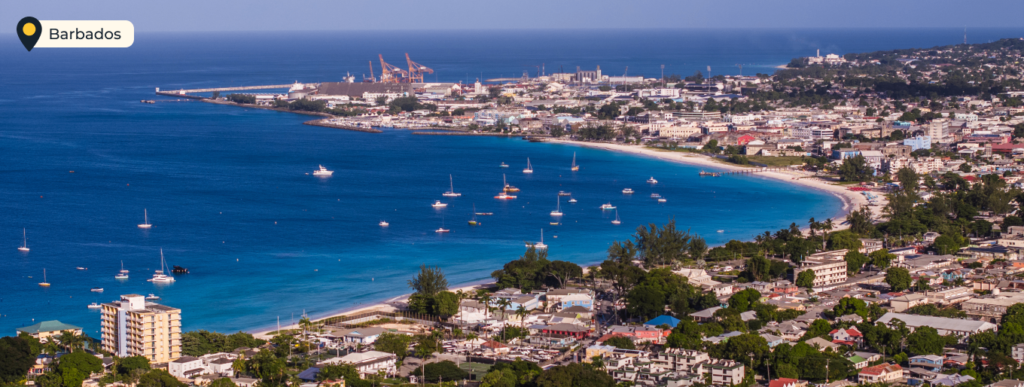
Barbados boasts a robust infrastructure, including reliable transportation and communication systems. The island has low levels of violent and petty crimes, contributing to its reputation as a safe destination. Quality healthcare facilities are readily available, and the government maintains political stability. Barbados also has comprehensive disaster preparedness plans, ensuring visitor safety during natural events.
The Cayman Islands: Clean, calm, and incredibly safe
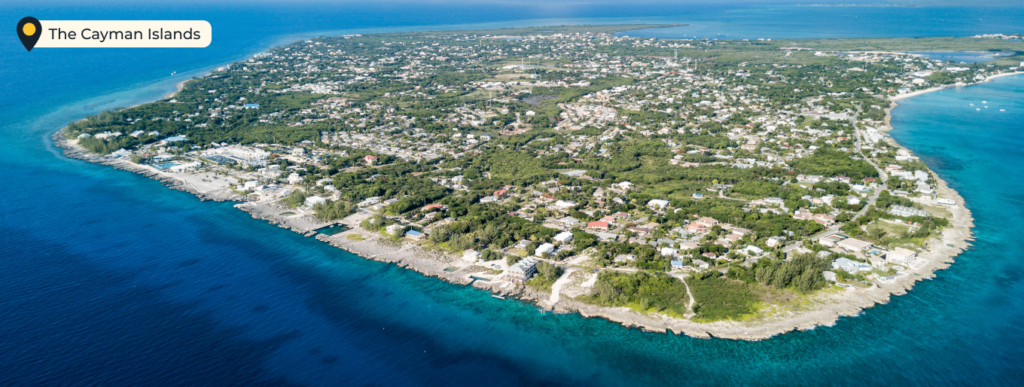
The Cayman Islands are known for their cleanliness and calm atmosphere, with very low crime rates. They offer high-quality healthcare services and well-maintained infrastructure. Located outside the hurricane belt, they are less prone to severe storms. The stable political environment and efficient tourist support systems enhance visitors’ safety.
Anguilla: Peaceful beaches and almost zero crime
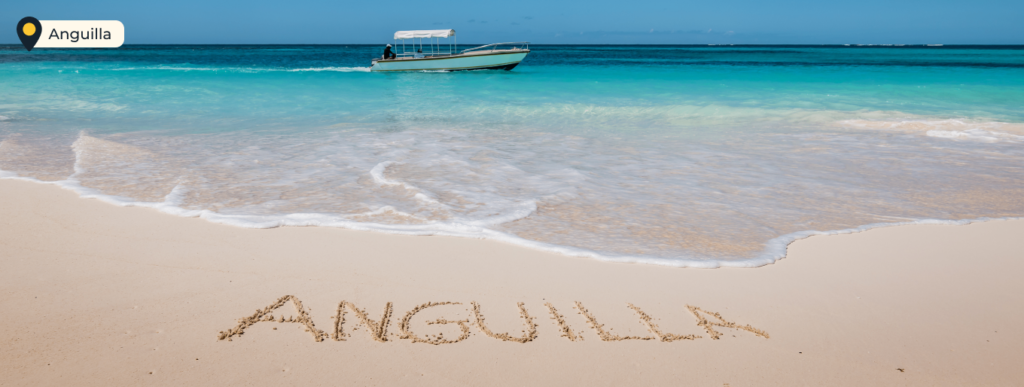
Anguilla is renowned for its peaceful beaches and exceptionally low crime rates. The island provides adequate healthcare facilities and has a reliable infrastructure. While within the hurricane belt, Anguilla has effective disaster response strategies. The political climate is stable, and the island offers supportive services for tourists, ensuring a safe and relaxing stay.
St. Barts: Upscale island with a French-Caribbean charm
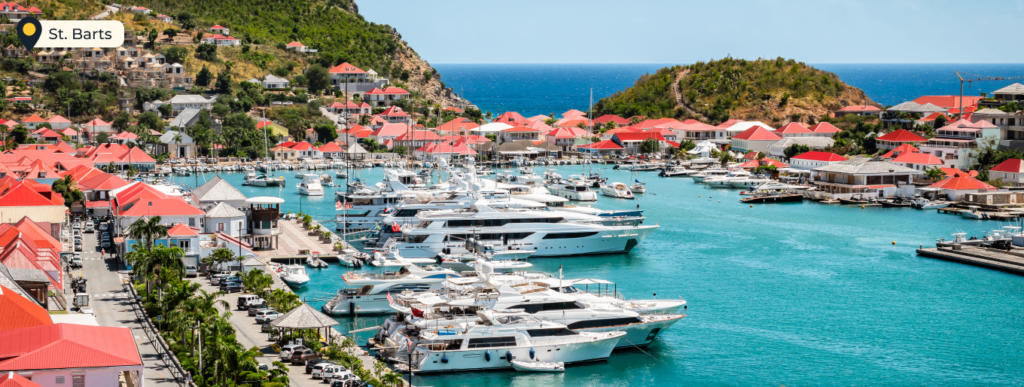
St. Barts combines French-Caribbean charm with upscale amenities and low crime rates. The island has excellent healthcare facilities and well-developed infrastructure. Although in a hurricane-prone area, St. Barts has robust disaster preparedness measures. The political environment is stable, and the island provides comprehensive tourist support services, making it a secure destination.
British Virgin Islands: Boater’s paradise and a safe haven
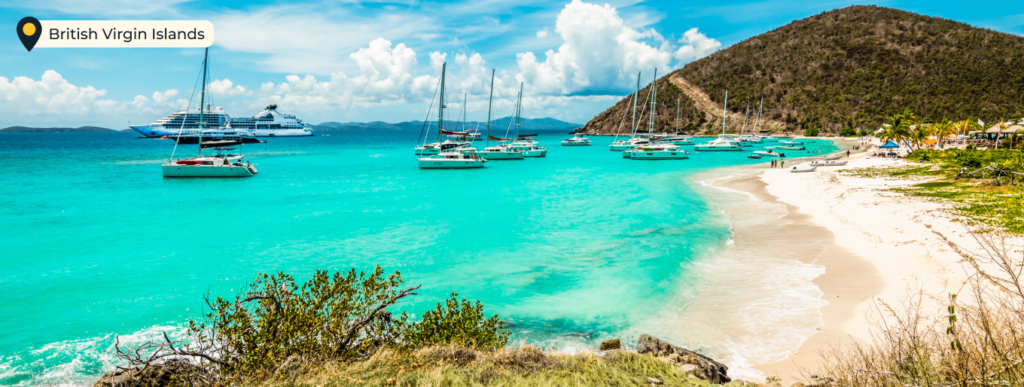
The British Virgin Islands are a haven for boaters, offering a safe and serene environment with low crime rates. The islands have reliable infrastructure and accessible healthcare services. Despite being in the hurricane belt, they have effective disaster preparedness plans. The political climate is stable, and tourist support services are readily available, ensuring a secure experience for visitors.
Bonaire: Excellent diving and safe solo traveler scene
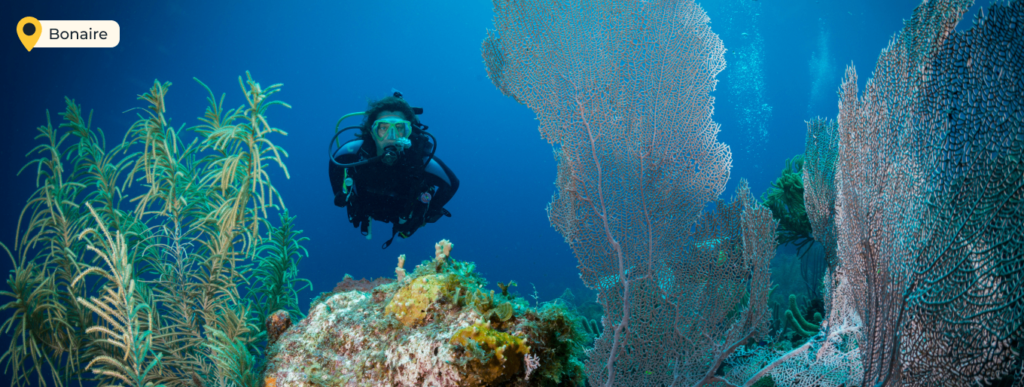
Bonaire is a favorite among divers and solo travelers, known for its low crime rates and welcoming atmosphere. The island offers quality healthcare facilities and dependable infrastructure. Located outside the hurricane belt, Bonaire is less susceptible to severe storms. The political environment is stable, and the island provides supportive services for tourists, enhancing safety and comfort.
Montserrat: Known for low crime and small-town feel
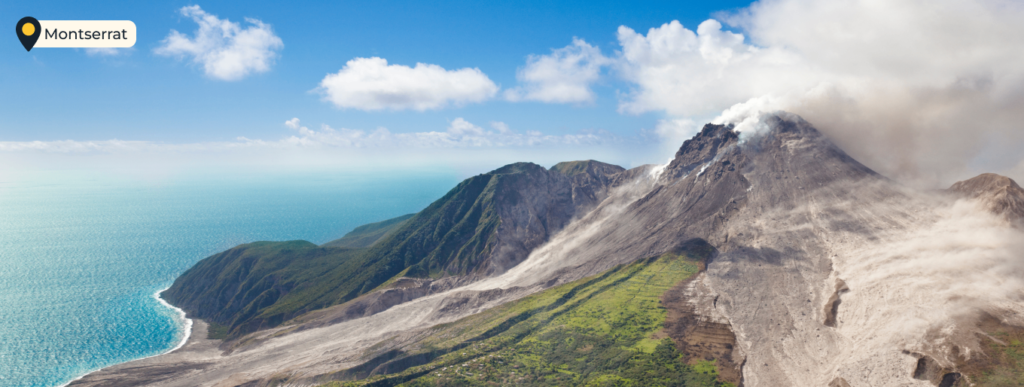
Montserrat offers a small-town feel with very low crime rates, providing a peaceful environment for visitors. The island has adequate healthcare facilities and reliable infrastructure. While within the hurricane belt, Montserrat has effective disaster preparedness measures. The political climate is stable, and tourist support services are available to assist travelers.
Antigua and Barbuda: Family-friendly and safe towns
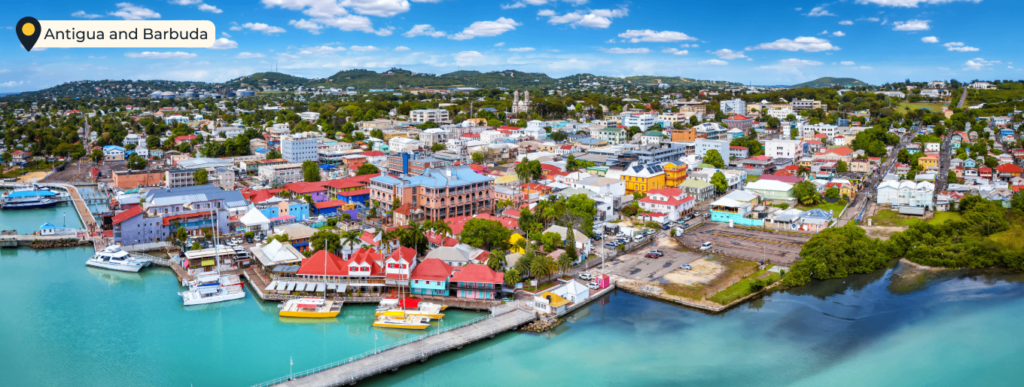
Antigua and Barbuda are family-friendly destinations with low crime rates and safe towns. The islands offer quality healthcare services and well-maintained infrastructure. Despite being in a hurricane-prone area, they have robust disaster response strategies. The political environment is stable, and comprehensive tourist support services are in place to ensure visitor safety.
Aruba: Consistently ranked as one of the safest
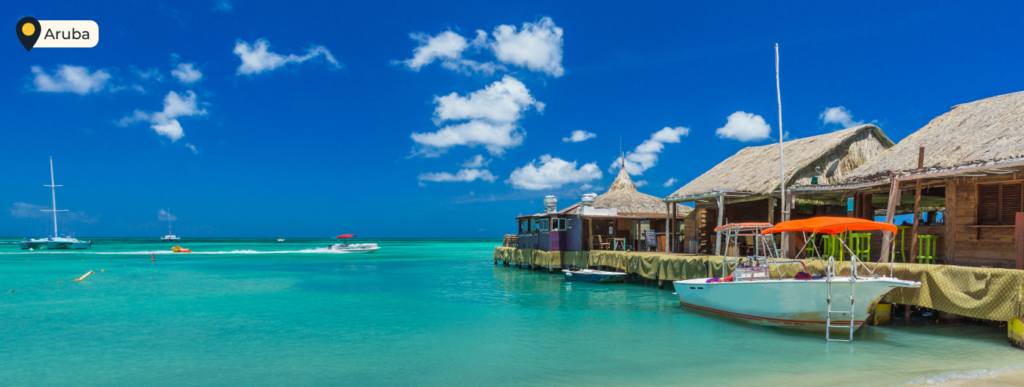
Aruba consistently ranks as one of the safest Caribbean islands, with low crime rates and a stable political climate. The island boasts excellent healthcare facilities and reliable infrastructure. Located outside the hurricane belt, Aruba is less affected by severe storms. Tourist support services are well-developed, providing travelers with a secure and comfortable experience.
Which Caribbean Islands Have Higher Crime? [+Safety Tips]
While the Caribbean is generally considered safe for tourists, not all islands offer the same level of security. Some destinations have higher crime rates, particularly in some urban regions or off-the-beaten-path locations.
Let’s discuss higher-risk Caribbean destinations.
Jamaica
Jamaica consistently ranks among the Caribbean countries with higher crime levels, especially in cities like Kingston, Montego Bay, and Spanish Town. Common issues include theft, armed robbery, and occasional gang-related violence. However, tourist zones such as Negril and resort areas in Montego Bay are typically well-guarded and safe for visitors.
Potential safety risks in Jamaica:
- Slow or unsatisfactory response to serious criminal incidents.
- Sexual assaults.
- High homicide rate.
Dominican Republic
While the Dominican Republic is a popular destination, areas like Santo Domingo and some neighborhoods in Puerto Plata and Punta Cana have reported incidents of petty crime, such as pickpocketing and scams. Violent crime exists but is generally concentrated in non-tourist neighborhoods.
The US government warns about:
- Credit card and ATM fraud.
- Violent crime in tourist areas, including sexual assaults and armed robberies.
Bahamas (particularly Nassau and Freeport)
Petty crimes such as theft, purse snatching, and fraud can be problematic in Nassau and Freeport. Tourists are occasionally targeted in more isolated areas or walking alone at night.
As of April 2025, the US government advises exercising high caution when traveling to the Bahamas. Potential threats include:
- Food and drink spiking.
- Sexual assaults, armed robberies, and other serious crimes.
- Burglaries.
| Important: These risks don’t mean you shouldn’t visit these countries—millions of tourists safely enjoy them yearly. It just means taking extra precautions is wise. |
To ensure you can enjoy your trip without unnecessary hiccups, follow these simple safety tips:
✅ Stick to daylight hours to explore less familiar areas.
✅ Use registered taxis or transportation apps instead of informal cabs. Avoid public transport.
✅ Don’t answer the door unless you know who it is.
✅ Don’t flash valuables like jewelry or expensive electronics.
✅ Stay in reputable accommodations with good reviews and visible security.
✅ Always keep copies of essential documents in case of loss or theft.
By staying informed and taking basic precautions, you can confidently enjoy even the most adventurous parts of the Caribbean.
Is the Caribbean Safe During Hurricane Season?
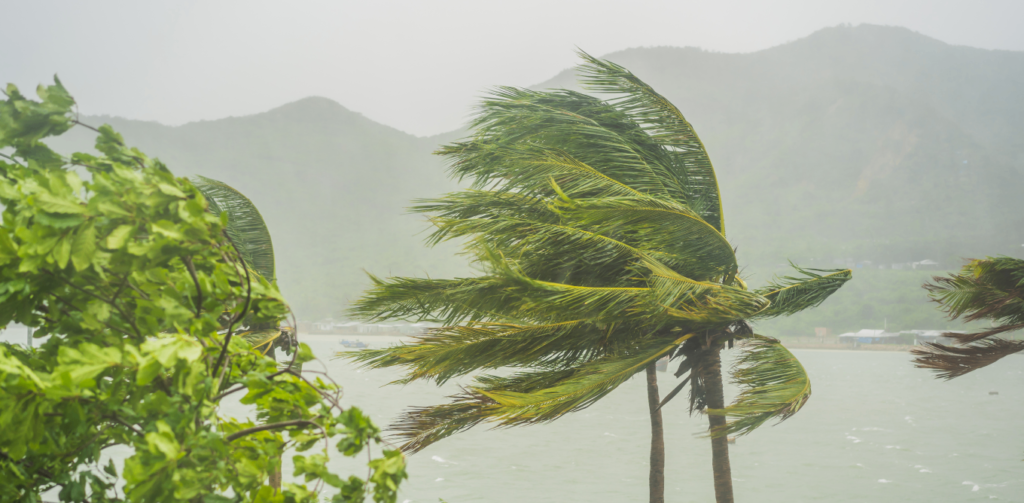
Yes, traveling to the Caribbean during hurricane season is generally safe—as long as you stay informed, choose your destination wisely, and take a few extra precautions. While hurricanes are a serious risk, they’re also predictable and relatively rare in any given location during a specific week of travel.
Hurricane season in the Caribbean runs from June to November, with peak activity typically between August and October. This period brings a higher risk of tropical storms and hurricanes, especially in the central and eastern parts of the region.
If you want to avoid the worst weather risks, consider visiting islands outside the traditional hurricane belt. These destinations rarely experience direct hits:
- Aruba
- Bonaire
- Curaçao
- Trinidad and Tobago
- Grenada (on the edge of the belt but less frequently affected)
These islands offer a safer bet for travel during hurricane season while still delivering gorgeous beaches and warm weather.
How to prepare if you’re traveling during hurricane season
Traveling during hurricane season doesn’t mean you have to cancel your trip—just prepare smartly:
- Buy travel insurance that covers weather-related cancellations, delays, or medical evacuation.
- Monitor the forecast closely in the days leading up to your trip—use apps like the NOAA Weather Radar or AccuWeather.
- Have a backup plan, including knowing where shelters are located and how to evacuate if necessary.
- Stay in touch with your embassy—know how to reach the US Embassy or Consulate in the country you’re visiting.
Medical Care & Emergency Services: What You Need to Know
According to Global Citizen Solutions, many Caribbean islands offer excellent healthcare services in private hospitals and clinics. Most islands have general practitioners and clinics for minor illnesses or injuries. However, access to specialized treatment and advanced diagnostic equipment is more limited.
Caribbean islands with notable healthcare facilities
If access to reliable healthcare is a top priority, consider traveling to these islands, known for quality medical services:
- Barbados: Home to the Queen Elizabeth Hospital and several private clinics, including Bayview Hospital.
- Cayman Islands: Offers world-class care at Health City Cayman Islands and the George Town Hospital.
- Bahamas: The capital, Nassau, has good facilities like Doctors Hospital and Princess Margaret Hospital.
- Aruba: Dr. Horacio E. Oduber Hospital is a full-service facility with modern equipment.
- Trinidad & Tobago: Major hospitals such as the Port of Spain General Hospital and private options in urban areas.
- Martinique & Guadeloupe: As French territories, these islands are part of France’s healthcare system and provide EU-standard medical services.
Travel insurance tips for Caribbean visitors
Travel insurance is strongly recommended because even the best Caribbean hospitals may require upfront payment or lack some critical care services.
Here’s what to look for:
- Emergency medical coverage: Ensure your plan covers hospitalization, outpatient care, and medications.
- Medical evacuation: Choose a policy that includes air ambulance transport to another country if necessary.
- Trip cancellation/interruption: Look for protection against disruptions caused by illness, weather (especially hurricanes), or unforeseen events.
Emergency contacts for US citizens
In case of an emergency during your stay in the Caribbean, US citizens should:
- Register their trip with the Smart Traveler Enrollment Program (STEP).
- Contact the nearest US embassy or consulate for assistance.
- Call the US Department of State—Overseas Citizens Services at 1-888-407-4747 (from the U.S.) or +1-202-501-4444 (from overseas).
Remember that carrying a valid passport is always a good idea in case of any emergencies. If yours is about to expire or you need to apply for one, we can help speed up the process.
Get a compliant passport photo in 3 minutes with PhotoAiD’s passport photo maker.
- Upload or take a photo.
- Let the PhotoAid Al check and fix it.
- A compliance expert will verify the result.
- Download or order a print. Done!


Get a digital passport photo or order prints with help from PhotoAiD®
100% acceptance, expert verified
2x money-back guarantee
3 minutes and done
11,000,000+ happy users
I was pressed for time and couldn’t get hold of a photographer. I found PhotoAiD, took a selfie, uploaded it, and had a compliant passport photo almost instantly. Getting a photo for my baby girl was a breeze, too!
Tips for Staying Safe While Traveling in the Caribbean
The Caribbean is a beautiful and generally welcoming region, but like any international destination, it’s important to stay aware and prepared. Whether you’re a solo adventurer or traveling with loved ones, following a few simple precautions can help you avoid unnecessary risks and fully enjoy your tropical escape.
Safety advice for solo travelers
Traveling alone offers incredible freedom, but it also requires extra vigilance. Here’s how to stay safe:
- Choose well-reviewed accommodations: Find places with secure entry, 24/7 staff, and positive traveler reviews—especially from other solo guests.
- Stay connected: Share your itinerary with friends or family and check in regularly. Apps like WhatsApp or Find My Friends can help others keep track of your location in case of emergency.
- Avoid walking alone at night: Stick to well-lit, busy areas in the evening. Use reputable taxis or rideshare apps rather than walking long distances after dark.
- Limit alcohol intake: Enjoy the nightlife, but avoid overindulging—especially if you’re unfamiliar with your surroundings or alone in a public setting.
Safety advice for families
A Caribbean vacation with kids or elderly family members can be unforgettable, but it’s essential to prepare:
- Research family-friendly islands: Some destinations (like Aruba, Antigua, or Barbados) are better equipped with safe resorts, healthcare access, and activities for children.
- Pack a basic first aid kit: Include sunscreen, bug spray, motion sickness tablets, and any prescribed medications to avoid scrambling in unfamiliar pharmacies.
- Establish a meetup plan: In busy areas like beaches or marketplaces, set a clear meeting point in case anyone gets separated.
- Use child safety products: Bring wristbands with emergency contact info, floatation gear for beach days, and any baby-proofing essentials if you’re staying in a vacation rental.
Safe Caribbean Islands to Travel to in 2025: Summary
Choosing the right Caribbean destination for your 2025 vacation doesn’t have to be a gamble. The ten islands featured in this guide stand out for their commitment to safety, stability, and traveler well-being.
With thoughtful planning and awareness, you can explore the Caribbean with confidence. Prioritize safety, travel responsibly, and enjoy the best that paradise has to offer in 2025.
FAQ
Sources:
https://www.globalcitizensolutions.com/caribbean-healthcare-systemhttps://travel.state.gov/content/travel/en/traveladvisories/traveladvisories.html/

As a Digital PR specialist and a member of the Society of Professional Journalists (SPJ), I have 5+ years of writing experience.
Over the course of my career, my work has garnered significant attention, with features in numerous prominent publications such as The New York Times, Forbes, Inc., Business Insider, Fast Company, Entrepreneur, BBC, TechRepublic, Glassdoor, and G2.
